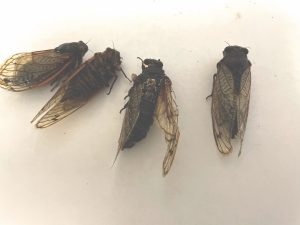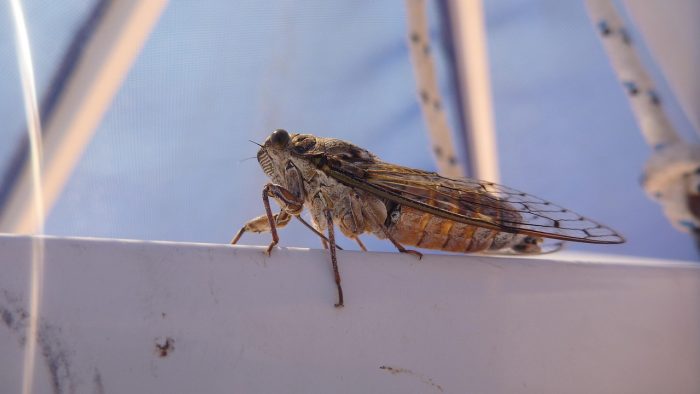By Peter Sloniewsky
In 2025, Brood XIV of periodical cicadas are emerging across the eastern United States. This specific brood is among the three largest of all the periodical cicada broods, which famously emerge every 17 years. Beyond its size, this brood is not unique in any biological manner, although it was the first observed by European settlers in the Plymouth Colony.

Broods of cicadas emerge every 17years: the length of time that is required for the cicadas to grow into adulthood. These broods are categorized by their generally synchronized emergence timing, although stragglers are also important for continued genetic diversity and interbreeding between broods.
University of Connecticut entomologist Chris Simon emphasized the prevalence of misconceptions surrounding that 17-year period.
“They don’t hatch out of the ground; they hatched from eggs in tree branches seventeen years ago,” Simon wrote in an email. “They are not sleeping underground, they are actively growing and passing through five juvenile stages.”
Simon also addressed some other misconceptions about the insects while elaborating on their environmental importance.
“They will benefit the local environment by fertilizing the soil, and feeding birds, turtles, snakes, fish… etc. above ground and soil invertebrates and moles underground,” Simon wrote. “Periodical cicadas are not dangerous… we are much more of an imposition on them, clearing their trees and building asphalt parking lots on top of them.”
She added: “They don’t fly around in large groups and they don’t ‘emerge in writhing masses.’”
Three Village resident Herman Werner said he had noticed an unusual number of cicadas on his property, but noted that their impact had indeed been minimal.
“They don’t really bother anything,” Werner said. “[They] just get louder as the day gets warmer.”
Simon stressed that people should try to enjoy the moment of emergence rather than considering the cicadas a threat.
“Rather than thinking of them as alarming or ‘annoying,’ think of having a ‘David Attenborough special’ in your own backyard,” Simon said. “They don’t invade. They have been there the whole time, quietly feeding on roots underground.”
Simon also added an anecdote about the origin of the insects’ scientific name.
“Avoid saying things like a certain area of the country was ‘spared’ from a ‘Magicicada’ emergence!” Simon wrote. “Rather, those areas were denied the spectacle! Periodical cicadas are ‘magical’; that is why they were renamed ‘Magiciada.’”





